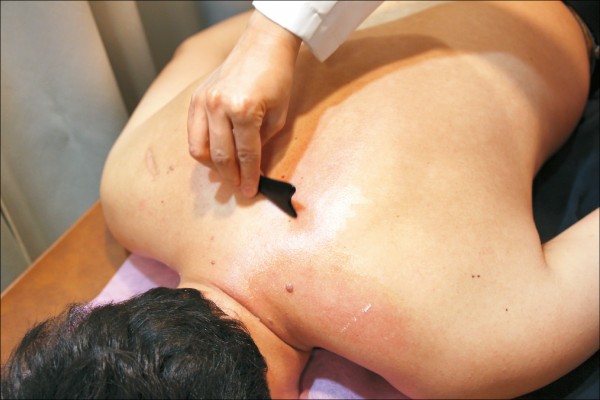Background of Scraping Therapy
Scraping Therapy (GUA SHA) is an ancient healing technique that origins from China thousands years ago. “Gua” means to scrape or rub. “Sha” is a reddish, elevated patch of skin. It involves palpation and cutaneous stimulation where the skin is pressured, in strokes, by a round-edged instrument, such as a ceramic Chinese soup spoon, a well worn coin or, even honed animal bones, water buffalo horn, or jade, resulting in the appearance of small red patches (“Sha’”).

Scraping therapy is believed to remove blood stagnation, promoting normal circulation and metabolic processes. GuaSha is applied primarily on the back, neck, shoulders, buttock and limbs of the body. The color of “Sha” varies according to the severity of the patient’s blood stasis—which may correlate with the nature, severity and type of their disorder—appearing from a dark blue-black to a light pink, but is most often a shade of red. Because the scraping is on the oily skin, the patient will hardly feel pain – neither during nor after the treatment.
Benefits of Scraping Therapy (GUA SHA)
Scraping Therapy (GUA SHA) is most commonly used to treat pain, it can also be utilized by TCM clinicians to address conditions such as:
- Fibromyalgia.
- Muscle Strains & Sprains.
- Muscle spasms.
- Colds & flu.